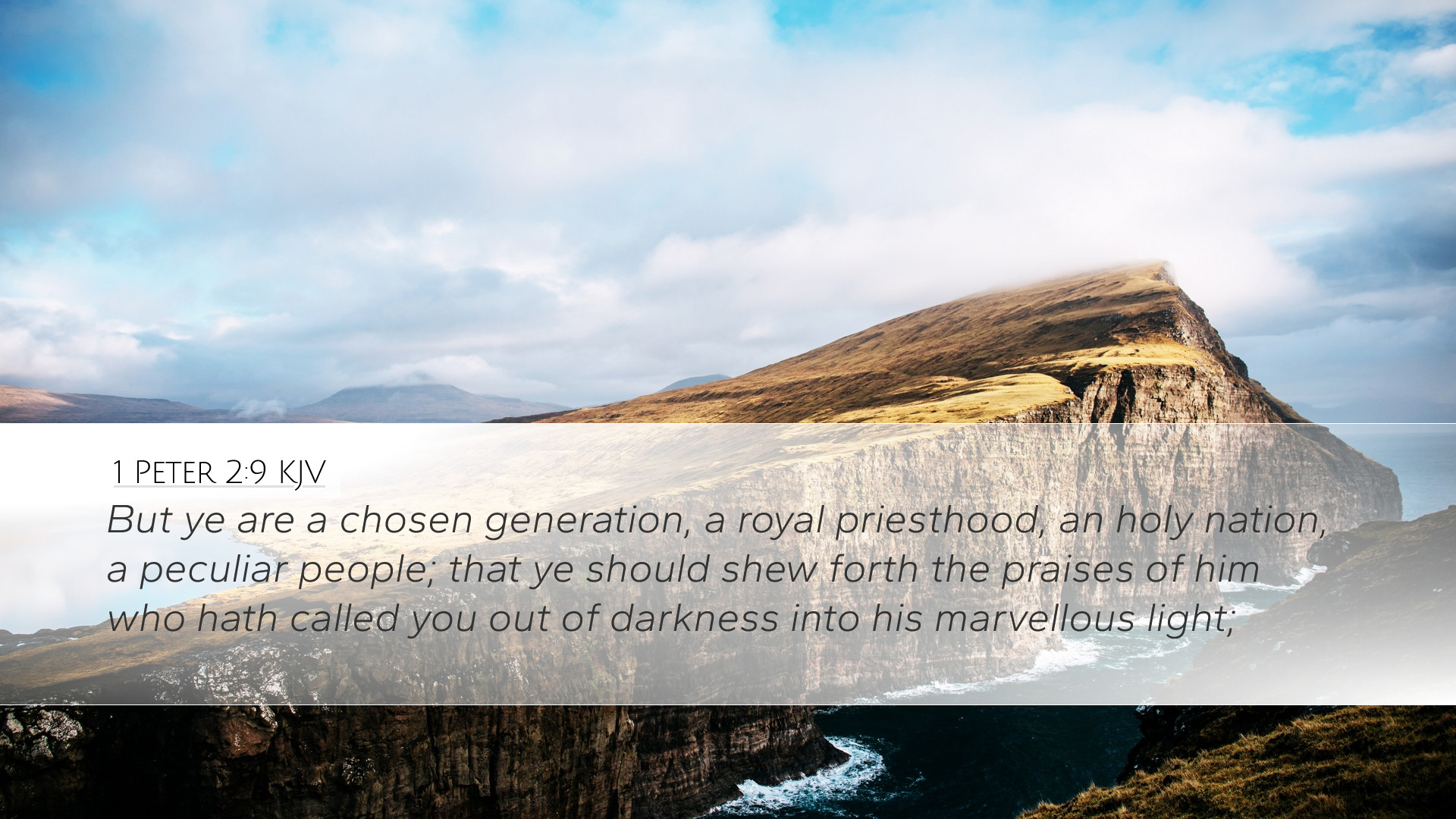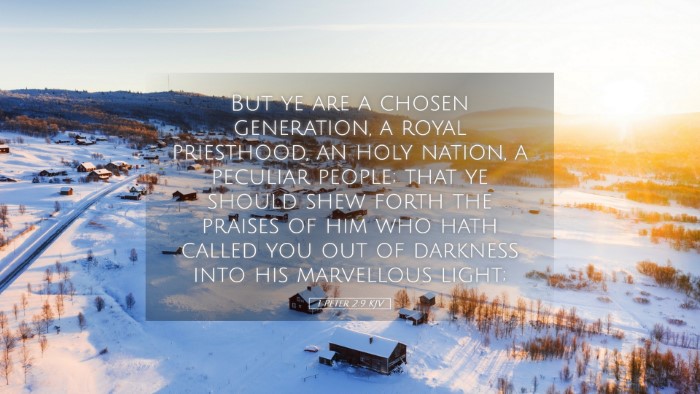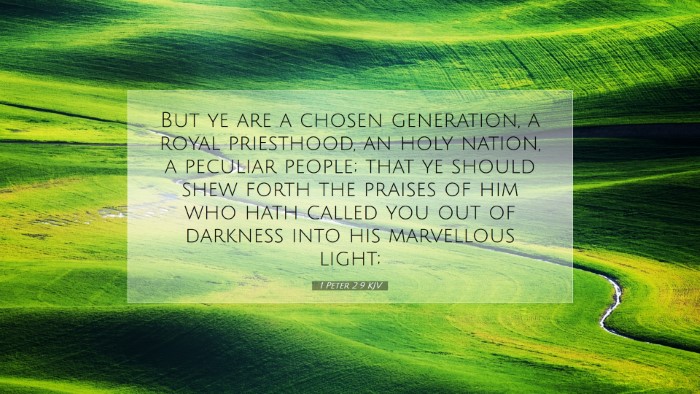Commentary on 1 Peter 2:9
Verse: "But you are a chosen race, a royal priesthood, a holy nation, a people for his own possession, that you may proclaim the excellencies of him who called you out of darkness into his marvelous light."
Overview
1 Peter 2:9 serves as a profound reminder of the identity and calling of believers in Christ. This verse encapsulates the transformational power of the Gospel and the unique status believers hold in the eyes of God. Through a synthesis of insights from public domain commentaries by Matthew Henry, Albert Barnes, and Adam Clarke, we arrive at a deeper understanding of its implications for both personal faith and community life.
Exegesis of Key Terms
- Chosen Race: The phrase signifies that believers are handpicked by God for a special purpose. Henry emphasizes that this choice is not based on merit but solely on divine grace.
- Royal Priesthood: This title suggests that all believers have direct access to God and are invited to serve in His kingdom. Barnes points out the significance of priesthood in the Old Testament and how it finds a new application in the lives of Christians.
- Holy Nation: The call to holiness indicates separation from sin and dedication to God. Clarke stresses the ethical implications of being part of a holy nation, urging believers to reflect their divine calling through their lifestyle.
- People for His Own Possession: This phrase reinforces the notion of belonging to God. It implies a committed relationship where believers are valued and cherished. Henry notes that this belonging entails responsibility and privilege.
- Proclaim the Excellencies: The mission of believers is to declare God’s greatness and goodness. This proclamation is both verbal and visible, reflecting God’s light in a dark world.
- Called out of Darkness: Dark represents sin and ignorance. Barnes discusses the dramatic transition from spiritual darkness to divine light, emphasizing the transformative nature of salvation.
Theological Implications
This verse encapsulates key theological concepts fundamental to Christian identity:
- The Doctrine of Adoption: As members of a chosen race, believers are adopted into God's family, marking a significant shift in their spiritual status.
- Universal Priesthood: Unlike the Old Testament priesthood, which was limited to a specific tribe, all believers are now called to fulfill priestly roles, a theme strongly emphasized by Clarke.
- Holiness and Separation: The expectation of holiness reflects God’s nature and indicates that believers are to live lives distinct from the secular world.
- Mission and Evangelism: The purpose for which believers have been called—the proclamation of God’s excellencies—creates a clear mandate for evangelism and living out the Gospel publicly.
Practical Application
The implications of this passage extend to various aspects of church life and individual conduct:
- Identity Formation: Understanding their identity as God’s chosen people can instill confidence and purpose in believers, encouraging them to embrace their roles within the church and the world.
- Community Life: The notion of being a 'holy nation' underscores the importance of unity and mutual accountability within the church, promoting collective holiness and witness.
- Worship and Service: As members of a royal priesthood, believers should engage in worship that is reverent and reflective of their high calling, while also serving others in love and humility.
- Witnessing to the World: Proclaiming God’s excellency involves not only words but also actions. Believers are called to be lights in the world, showcasing their faith by how they live.
Conclusion
1 Peter 2:9 is a rich and multifaceted verse that addresses the identity, calling, and responsibilities of believers. As highlighted by Matthew Henry, Albert Barnes, and Adam Clarke, it serves as both a comfort and a challenge to live in a manner worthy of the high calling received in Christ. The implications of being a chosen race, royal priesthood, and holy nation are vast and demand both personal reflection and collective action within the body of Christ.


